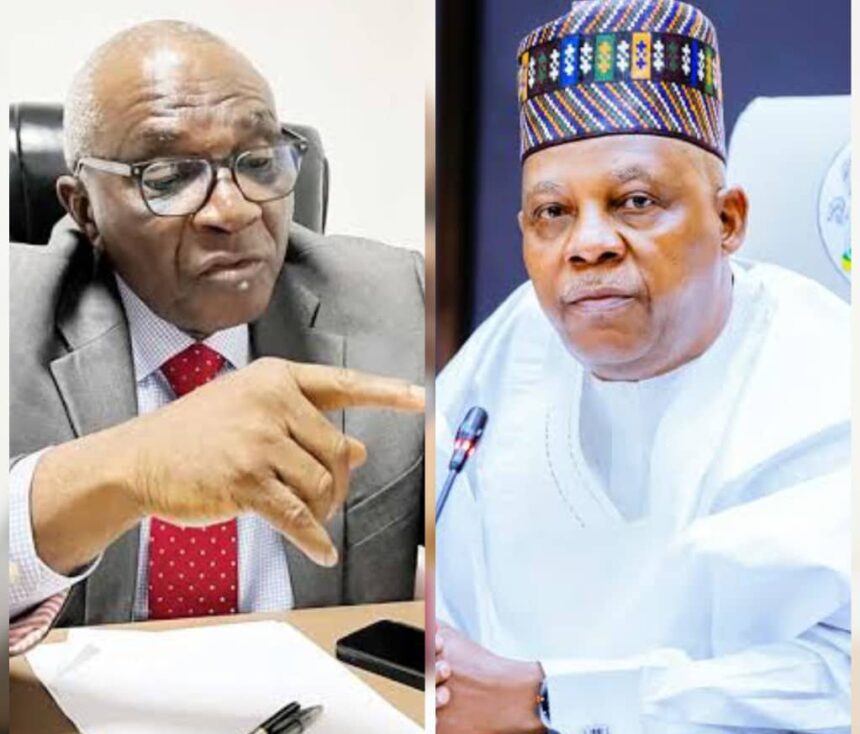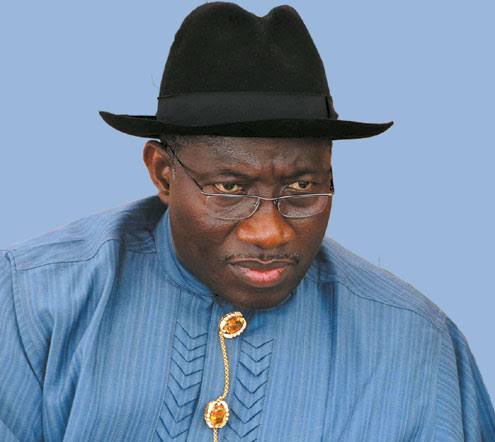Bayo Onanuga, Special Adviser to President Bola Ahmed Tinubu on Information and Strategy, has responded to a recent statement made by Vice President Kashim Shettima regarding the constitutional limitations of presidential authority over state governors. The clarification came after Shettima’s comments during a book launch were interpreted by some as referencing the political crisis in Rivers State.
On Friday, July 11, 2025, Onanuga issued a statement via his official X (formerly Twitter) account, emphasizing that Vice President Shettima’s remarks were not directed at the current controversy involving Governor Siminalayi Fubara of Rivers State. Rather, Onanuga stated, Shettima was recounting a past incident involving former President Goodluck Jonathan and the 2014 Chibok schoolgirls kidnapping crisis.
According to reports from Track News Online, Shettima, during the launch of a book authored by former Attorney General of the Federation, Mohammed Bello Adoke, recalled an episode from his time as Borno State Governor. He said that during the Chibok incident, President Jonathan allegedly attempted to remove him from office due to the fallout from the mass abduction. However, Adoke reportedly intervened and advised the president against such action, noting that the Nigerian Constitution does not empower a president to unilaterally remove a sitting governor.
In light of the renewed public interest and interpretations surrounding Shettima’s comments, Onanuga issued a firm clarification. He wrote on his X page that Shettima’s statements were made strictly in the context of praising Adoke’s professional conduct during his time in office as Attorney General. Onanuga stressed that the vice president’s remarks had no connection to the political situation in Rivers State.
“We wish to state categorically that Vice President Shettima’s comments were made within the specific context of acknowledging the author’s past professional conduct during his tenure as Attorney General of the Federation,” Onanuga posted. He further added that President Bola Ahmed Tinubu did not remove Governor Fubara from office. Instead, he said the President’s involvement was limited to actions aimed at restoring peace and order in Rivers State, including the temporary suspension of political tensions.
The statement comes amid ongoing political unrest in Rivers State, where Governor Fubara has been at the center of a prolonged power struggle with members of the State House of Assembly and other political stakeholders. The conflict has drawn national attention, with various parties accusing the federal government of interfering in state affairs. While the presidency has maintained that its role has been to facilitate peace and governance, critics have pointed to certain decisions as potential overreach.
Onanuga’s response appears aimed at diffusing speculation that Shettima’s remarks were intended as a veiled critique of President Tinubu’s handling of the Rivers State crisis. The adviser emphasized that the President has acted within constitutional boundaries and that any assertions suggesting an attempt to remove a sitting governor are unfounded.
The incident referenced by Shettima dates back over a decade and involved a major national security crisis. In April 2014, more than 200 schoolgirls were kidnapped by Boko Haram militants from Chibok, Borno State. The federal government at the time faced intense criticism over its response to the kidnapping. Shettima, then the sitting governor, had a strained relationship with the federal authorities during the incident. His account at the book launch suggests that President Jonathan was advised not to act unconstitutionally, with Adoke providing that counsel.
Mohammed Bello Adoke, whose book prompted the discussion, served as Nigeria’s Attorney General and Minister of Justice from 2010 to 2015 under President Jonathan. His tenure covered a period marked by several legal and political challenges, including the Boko Haram insurgency and widespread allegations of corruption.
Onanuga’s swift response reflects the administration’s sensitivity to narratives that may cast doubt on its adherence to constitutional limits, particularly in politically volatile regions. As tensions remain high in Rivers State, and with increasing public scrutiny of federal actions, clarifying the intent and context of statements by top officials has become crucial.
The debate over the limits of presidential authority in Nigeria continues to be a central topic in discussions around federalism and governance. While the constitution clearly outlines the powers and roles of different levels of government, interpretations often become contested in times of political crisis. Onanuga’s clarification seeks to underscore the government’s commitment to constitutional democracy and respect for the rule of law.





